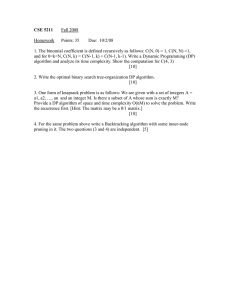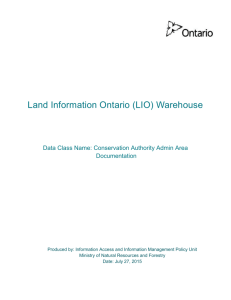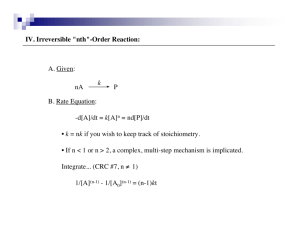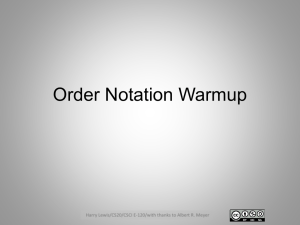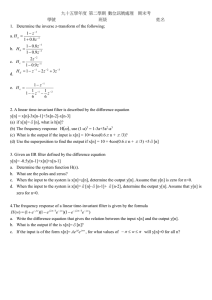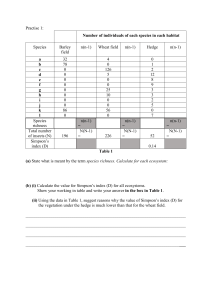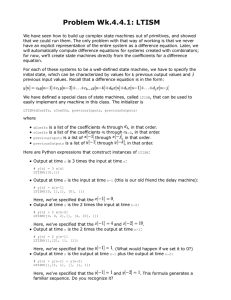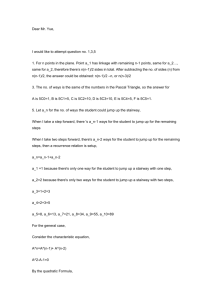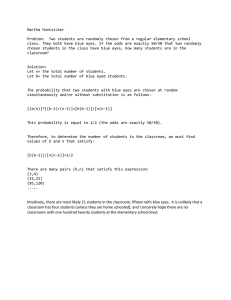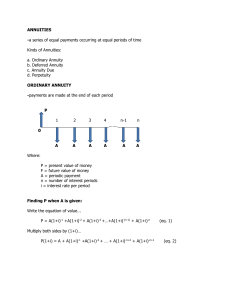Algorithm/Running Time Analysis
advertisement
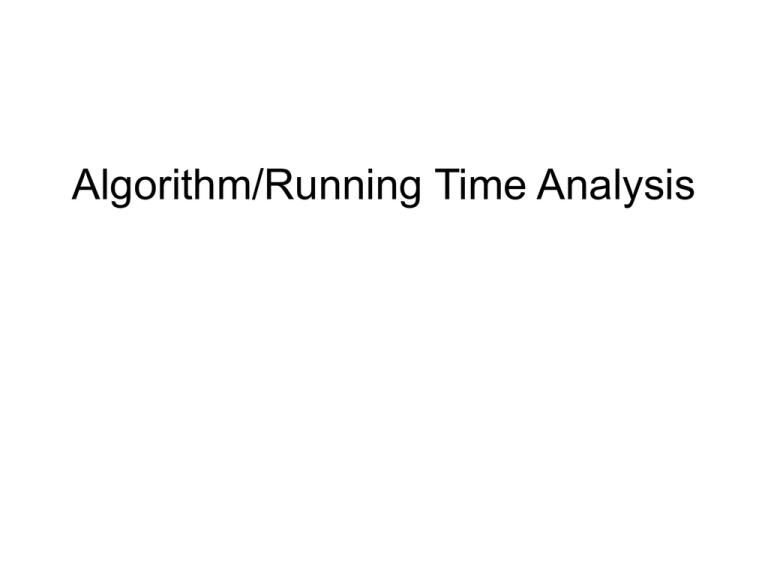
Algorithm/Running Time Analysis Running Time • Why do we need to analyze the running time of a program? • Option 1: Run the program and time it – Why is this option bad? – What can we do about it? Pseudo-Code • • Used to specify algorithms Part English, part code Algorithm (arrayMax(A, n)) curMax = A[0] for i=1 i<n i++ if curMax < A[i] curMax = A[i] return curMax Math Review • Summation – ∑ • Sum of n consecutive digits = n(n+1)/2 Counting Operations Algorithm (arrayMax(A, n)) curMax = A[0]//1 for i=1 i<n i++ //n //1 or 2 if curMax < A[i] curMax = A[i] return curMax //1 • Best case – n+2 • Worst case – 2n + 2 • Average case – hard to analyze Asymptotic Notation • • • • 2n + 2 n=5 -> 12 n=100 -> 202 n=1,000,000 -> 2,000,002 • Running time grows proportionally to n • What happens as n gets large? Big-Oh • f(n) is O(g(n)) if there is a real constant c>0 and an integer constant n0>=1 such that f(n) <= cg(n) for every integer n>=n0 • 2n+2 is O(n) n0>=1 c=3 Examples • 87n4 + 7n • 3nlogn + 12logn • 4n4 + 7n3logn Terminology • • • • • • Logarithmic – O(logn) Linear – O(n) Linearithmic – O(nlogn) Quadratic – O(n2) Polynomial – O(nk) k>=1 Exponential – O(an) a>1 Example 0 n-1 0 6 4 n-1 … 2 12 3 … 9 … … … … 5 8 … 1 • Find maximum number in nxn matrix • Algorithm: Example • What is the big-oh running time of this algorithm? Algorithm: Input: A, n curMax = A[0][0] for i=0 i<n i++ for j=0 j<n j++ if curMax < A[i][j] curMax = A[i][j] return curMax Another Example 0 2 0 6 4 n-1 … 6 8 n-1 … 3 • Determine how many elements of array 1 match elements of array 2 • Algorithm? Another Example 0 2 0 6 4 n-1 … 6 8 n-1 … 3 Algorithm: Input: A, B, n for i=0 i<n i++ for j=0 j<n j++ if A[i] == A[j] matches++ break • What is the running time of the algorithm?

